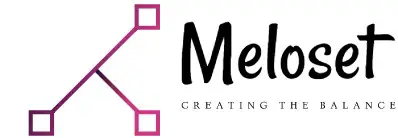How to Apply for Australian Visa from Nigeria
Australian Visa Application Process from Nigeria
At the Australian High Commission in Abuja, the Australian Government does not offer visa services. This article explains how to apply for Australian Visa from Nigeria.
Online lodgement is the preferred technique for applying for visas. Firstly, you must register for an ImmiAccount, a personal online account, in order to begin an application. You can make and manage all of your online visa applications with ImmiAccount. Your account can be used for: visa application, payment, application archive, visa tracking and filing via TLScontact.
For some visa categories, you can submit a paper application at a TLScontact Australian Visa Application Center (AVAC) in case you are unable to submit your visa application online for whatever reason.
Australian Visa Application from Nigeria (TLS Addresses)
Please be aware that if you want to utilize this service, you must pay an extra service cost to TLScontact. For the collection of biometrics at an AVAC, which is necessary for residents of some countries, a service fee will be due. Click here for more details: TLScontact
The following sites in Abuja and Lagos are home to TLScontact Visa Application Centers:
Abuja Address: El Yakub Muhktar Place, Zakariya Maimalari Street, 3rd Floor, Abuja CBD
Working Days: Weekdays: Monday through Friday
Lagos Address: 5th and 6th Floors of Etiebets Place in Ikeja, Lagos, 21 Mobolaji Bank Anthony Way
Working Days: Weekdays: Monday through Friday
Calls should be made to +27 (0)12 472 3800 between 8:30 and 4 on weekdays. South African Time
Note: There are call-related costs abroad. There is a place to provide contact information.
Vaccination Requirements Per Application
It is important to visit Threats to Public Health for a general overview of public health and safety hazards in Australia.
Polio Vaccination
A proof of polio vaccination must be included with your visa application if you have spent more than 28 days since May 5, 2014, in Afghanistan, Cameroon, Equatorial Guinea, Ethiopia, Iraq, Israel, Nigeria, Pakistan, Somalia, or Syria.
The Australian High Commission may contact you with information on how to submit your vaccination certificate if you did not submit one when you submitted your visa application. You can also show your certificate to the Visa Application Center that is most convenient for you.
Yellow Fever Vaccination
Visa holders commonly inquire with us about the immunization requirements for Yellow Fever in Australia. Visit Yellow Fever – General Fact Sheet for information on Yellow Fever and immigration into Australia.
Submitting Your Visa Application from Nigeria
The Australian High Commission in Pretoria, South Africa, handles all visa applications from Nigeria for Australia. Visit the Visa and Migration website in Pretoria for additional information about the visa application procedure.
Completing Your Biometrics
Unless expressly excluded or exempted from doing so by Australian Government policy, all visa applicants—regardless of their nationality—who are residents of Nigeria at the time they apply for a visa to enter Australia must submit their biometrics (fingerprints and a digital image). Please see: Biometrics Program for further details regarding Australia’s biometric program.
Visa Types for Nigerian Applicants
The Department of Home Affairs of Australia’s Visa Finder can be used to find details on the various Australian visas, including requirements, application forms, and fees.
Awaiting Visa Decision
Contacting the Visa and Immigration Section at the Australian High Commission in Pretoria through email at immigration.pretoria@dfat.gov.au will allow you to inquire about the status of your visa application or obtain more information. Although email is the preferred means of communication, a lot of visa applications are submitted to this office each day. The processing of your visa application may be delayed if you respond to numerous or pointless questions about visas.
Ethical Practices and Caution Against Fraud
Applicants are to be alert and take note of the following.
Visa Fraud, Scams and Alerts
The handle “.gov.au” will always end the email addresses and websites for Australian Government Departments such as the Department of Home Affairs and the Department of Foreign Affairs (DFAT). If mail purporting to be from a government department does not follow this structure, caution should be taken.
Interestingly, The Australian Government is aware that applicants in Africa have been the target of phishing emails that purport to offer visa services in connection with job opportunities in Australia. Scam emails have been known to pose as coming from the Australian Government in some situations, such as the Australian High Commission or the Australian Department of Home Affairs.
Thus, only the Australian High Commission, the Australian Border Force, or Teleperformance Nigeria should be contacted directly by applicants. Furthermore, before supplying any personal information or making any payments, applicants must carefully investigate the validity of all job and visa offers.
You should contact your local police if you think you’ve been the victim of a scam, and you might also want to report it on the Scamwatch website of the Australian Competition and Consumer Commission.
Fraudulent Cruise Ship Employment
The Australian Government is also aware that customers in Africa have been the victim of unsolicited emails from Australian cruise ship firms falsely offering employment. This con tricks people into paying monies that are meant to go toward fake “foreign worker certificates” or visas.
The bogus emails appear to come from outside, not from Australia. The Australian High Commission does not confirm employment. It is the responsibility of job seekers to confirm all employment offers using the relevant companies’ publicly available contact information.
Visa Submission Fraud
There are numerous stories of Nigerian nationals who fall victim to fraud when trying to apply for an Australian visa. These victims are paying fictitious “travel agents” significant sums of money to submit Australian visa applications on their behalf, with the visa applications never sent to Australia’s Department of Home Affairs. These scam victims have lost their money as a result. They won’t be given a visa to travel to Australia. Agents may even present counterfeit paperwork asking applicants to submit their biometric data at a TLScontact Australian Visa Application Centre.
To avoid being a victim to visa fraud, visa applications should be submitted either by the applicant directly through the Australian Government’s ImmiAccount, through the authorized service provider TLScontact, or with the help of a licensed travel agent.
Here’s why Australia is top study destination for international students
Explore housing options in Australia today








